
Keywords are the backbone of a good AdWords account. These are the words that are driving your website visitors so they should be focused on achieving your business objectives. The keywords you use should be reflected in your ads and landing page in order to ensure relevance and receive a higher quality score.
As of today, according to internet live stats, there are over 3.8 billion internet users and there have been over 4.3 billion searches on Google so far today. With so many searches, it is important to make sure that the keywords you use are not too broad.
For example, if I’m a plumber and I bid on the word “plumber,” then I will end up paying for clicks from people that are not even looking for a plumber. The traffic derived from internet advertising is not necessarily good unless it is quality traffic from interested consumers.
Instead, it is much smarter to use the same language that someone would type into the browser when looking for your services. A keyword like “plumber near me” would result in much better customer acquisition. One of the best free options for researching keywords is the AdWords Keywords Planner.
So, how do you start? Watch this informative 3-minute tutorial to learn how to use the AdWords Keyword Planner.
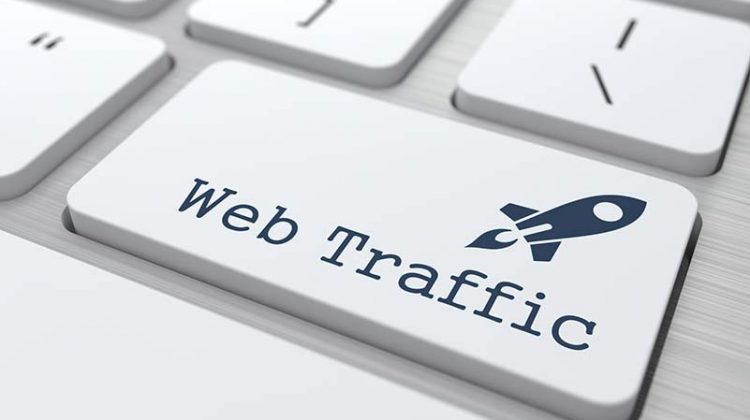
Whether it’s growth hacking, lead generation, or whatever you want to call it; you need to get traffic to your website in order to get sales. That’s why you need your business to show up at the top of the SERP’s (search engine results pages). You will want to show up for keywords that, when your link is clicked on, will lead to a percentage of the users buying, filling out a lead, or some other conversion that drives your business goals.
The best way to get traffic to your website is to hire professional SEO & online marketing agency like Online Marketing Techs.
However, if this solution doesn’t fit your business, then keep reading. There are two major sources to consider when strategizing to get traffic to your website:
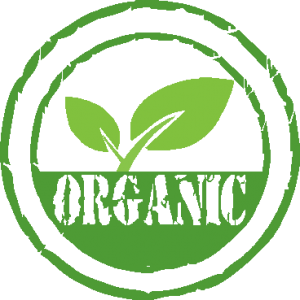


Keywords are the foundation of both organic and paid strategies that get traffic to your website. When a browser user types a query into the search engine, the search engine will return the most relevant results based on the keywords they entered.
For paid search, it is essential to your success that you have quality keywords that will drive your business objectives. It is a best practice to have keywords that are not too broad. For instance if you sell guitars, you wouldn’t want to bid on the keyword “guitars” because you will be paying for clicks from people that are not interested in buying a guitar. A keyword like “guitar store near me” or “buy guitar” would be better choices.

One of the major factors of whether your website will rank in search engines is on-page SEO or search engine optimization. This will tell the search engines whether the code is semantically correct, clean and can help explain to search engines what your web page is about. There are many factors that determine ranking. Just some of the factors that are important to consider concerning on-page SEO are:
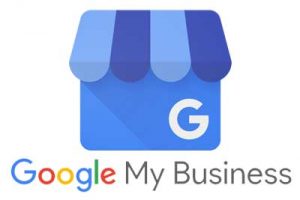
Have you ever wondered why some businesses are listed in Google Maps and some aren’t? Have you ever searched a business on Google and seen a widget in the search results that has the businesses website, phone, number, hours, etc.? Well those companies are listed on Google My Business. This is a great way to get traffic to your website using organic methods.
Not only does this give you a type of widget in search results, but it allows you to edit and maintain your business listing in the world’s most used search engine. It also shows your business on Google Maps and allows you to use location extensions in AdWords.
In order to get started, just visit Google My Business and fill out the appropriate information. They will send you a postcard in the mail to your businesses physical address that has a pin number to verify your business. Once you are verified, you will show up on Google Maps, local search, and more.
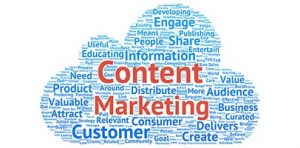
Videos, eBooks, blogs, articles are all examples of content marketing. Their purpose should be to draw in prospective customers or clients with engaging and relative content that will ultimately result in a profitable action. These should be well thought out content pieces that your customer would really want to engage with.
Every time you create content, it lives on the web and creates links in the search engines. If your content is good enough to rank high for industry specific search terms, then you will gain significant and relevant traffic from each piece that does (especially compounded over time). The more quality content you can create, the better chances you will have of being found. Make sure you use on-page SEO for content published on your website in order to rank well.

This is really a no-brainer. If you’re in business, you need to focus some of your efforts on social media. This could be Facebook & Instagram, Twitter, LinkedIn, etc. Social media is a great place for customers to find and research your business on platforms they are familiar with. All of the engaging content you create can be promoted on social. It also allows your business the ability to reach out and connect with your target audiences.
What’s more, is that search engine use social indicators when ranking web pages. All of the positive actions (liking, sharing, etc.) that happen on social tell the search engines that your business matters. All of your content marketing should be shared on social media.
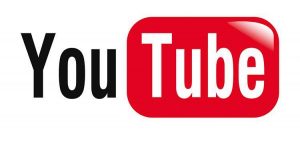
Technically, YouTube is a social media platform, video sharing application, and a search engine. So, this also falls into the content marketing and social media categories. In fact, after Google, YouTube is the 2nd largest search engine (and is actually owned by Google). So, as you might have guessed, videos that rank well in YouTube also rank well in Google.
However, you want to look at it, YouTube is a terrific way to create and share content as well as grow an organic audience to get traffic to your website.
The best way to achieve this is by having a YouTube channel with quality content your target audience will want to watch that is well optimized with a steady stream of video content. Try to do one video week if you can.
There are many great video ideas and you should try to come up with as many as you can. Some good ideas for compelling YouTube video content include:
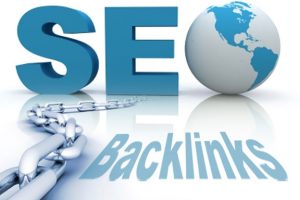
A backlink is a link coming from another website to your website. Backlinks are actually at the foundation of search engines and the internet as educational institutions like Stanford would use backlink citations coming from people referencing the content in order to rank the best education articles, studies, and research.
These were once the biggest factors in SERPs ranking as search engines would see that people that find the content valuable would link to it. However, SEO overdid it and forced the hand of search engines to reassess how they factored backlinks.
So, if you have links coming from spammy sites you will actually be penalized. If you get a lot of backlinks at once and then nothing, you will be penalized.
There are two types of links as far as SEO is concerned:
You want to get do-follow links that look natural. Consistently build these links over time so that it doesn’t look spammy. There are many ways to build backlinks, but it takes a lot of work and consistency.
There are several ways to pay for paid traffic.

Search engine marketing uses ads triggered by keywords typed into search engines to entice people to click and buy. When people are researching what they should buy, they go to the search engines. The standard for search engine marketing conversion rate is 1% – 2%. However, Online Marketing Techs average conversion rate for its clients is between 6% – 7%.
I will cover AdWords here. Bind Ads is very similar. In fact, you can import the campaigns you’ve created in AdWords directly to Bing Ads.
When an internet user types a query into the search engine that triggers a specific keyword, advertisers will bid on that keyword. The ad with the highest Ad Rank will win the auction. Ad rank is determined by this equation:
Bid + quality score + expected click-through rate
AdWords and Bing Ads are the main search engine marketing platforms. With both of these you will need to build out:
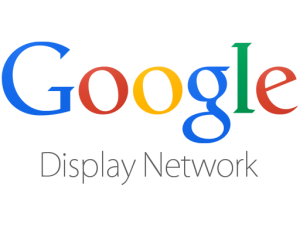
The Google Display Network (GDN) is comprised of Google Properties and partners sites & applications across the web. This includes YouTube, over 2 million websites, 650,000 apps, Gmail, and Blogger. It allows you to show a type of contextual banner ad of many sizes across the GDN.
The display network offers a plethora of targeting options to reach your target audience. You can target by Topic, Keyword (site content), Interest (user interests), Custom Audiences, Demographics (gender, age, household income), Placements (specific websites, apps, YouTube video or channel), and more.
I recommend only picking one targeting method per ad group. If you have two options selected, both of those criteria must be met in order for the ad to show.
AdWords allows you to create video ads that show on the YouTube Network with TrueView ads. The targeting options are similar to the GDN.
There are 3 main types of video ads you can promote on YouTube:
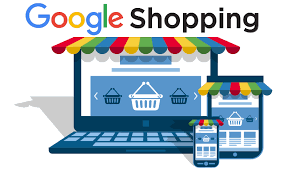
If you’ve ever searched for a product on Google, you may have seen product ads with images, description, and pricing. Google Shopping allows retailers and product advertisers to promote products across Google Search, Google Shopping, and Google Search Partner websites (including YouTube & Image Search). This uses the CPC bidding and uses the product description in the data feed for targeting. Advertisers typically pay much less for a Shopping ad than a regular text search ad.
In order to advertise on Google Shopping, you will need a landing page where a physical product can be bought, a data feed, Google Merchant Account, and an AdWords Shopping campaign. Other great product advertising platforms include eBay and Amazon.
Extensions allow you to expand your ad with helpful and relevant information. When you use an extension, it also increases your expected click-through rate. Because you are now taking up more of the page and giving more information, you have a greater chance of an internet user clicking on your ad.

Facebook / Instagram, Twitter, and LinkedIn are just a few of the social media platforms to promote your business. These platforms allow you to target your core audiences in many different amazing ways. I will cover some of the Facebook advertising features here.
For those of you that don’t know, Facebook owns Instagram. So when you advertise on Facebook you have the option of displaying those ads on Instagram as well as long as the picture is the appropriate size. Facebook requires you to have a Facebook page in order to market on their network.
When you build a Facebook campaign, you have the option of creating specific types of campaigns that are designed for specific goals. These campaign types include:
In each campaign you will build out ad sets that have your targeting and settings. Depending on the campaign type you are using, your targeting options will vary. Typically you will be able to target by age, gender, location, languages, interests, page interactions, behaviors, detailed targeting, custom audiences, lookalike audiences and more. You will also select if you want to advertise on Instagram or not.
This is where you will put your ad creative. You can connect this to your Facebook page so that any action taken on the ad will be associated with your FB presence. Depending on the campaign type you will be able to show an image or images, video, collection, products (from feed), post, headline, text, display link, news feed link description, and call to action.
All of these methods are great ways to get people to your website; especially when they are all used together. Contact Online Marketing Techs to get more visitors to your website.
Today I got an email from Google Analytics talking about the new user reporting, and so I’d like to check it out.
In order to enable it, you go to the Admin > Property Settings then toggle the switch to enable users in reporting.
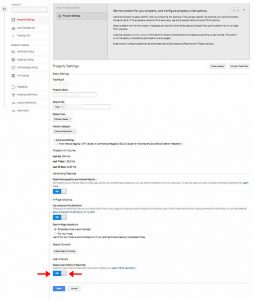
I’ve already got it enabled in here. So, what I’m going to do is just go ahead and show you what it looks like. Here’s the user explorer and here’s there client ID. This is a unique ID that Google Analytics assigns to every device from when your user engages content on your website.
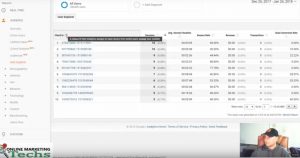
It shows sessions, average session duration, bounce rate, revenue, transactions, and the goal conversion rate. Now, it looks like it only has the transactions from eCommerce. I can’t see the goals or goal conversion. It doesn’t look like there’s a way to change the goals either, but it’s still pretty cool. I can see the goal conversion rate between the different users.
Look at what happens when I click on a user ID.
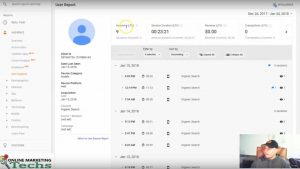
It shows me the sessions. This guy had 9 sessions. The session duration was 23 seconds. It looks like he was pretty engaged and came from organic. You can see all the different sessions he had and the time of the sessions. It shows you the pages they engaged with. That’s pretty cool.
I really like the report. This is super awesome. One thing that I think they could improve is being able to choose the goal. For instance, you have different signups on different pages. One other thing that I would like to see is to have the secondary dimension option to show keywords. Still really good!
Contact Online Marketing Techs for all of your online marketing needs.
Okay, so today I’m going to be testing several different keyword tools. These keyword tools will be testing the same search terms to see if we can see any discrepancies between them.
We’ll start off with the AdWords Keywords Planner with the search term “iPhone X.” iPhone X gets 2,240,000 searches according to Google AdWords a month. This is in the United States.
Let’s see what MOZ says about it. OK iPhone X gets 300k-1.5m. That’s a little bit different. That’s not quite the same as what AdWords is telling us with the same keyword.
So, let’s see what it says in the SERPs. Same keyword iPhone X. iPhone X says 6,600. That’s a huge difference.
Let’s see if we can get some search results from SEM Rush. Let’s see what SEM Rush is saying. iPhone X. Organic search 2.2m. That’s a little bit closer to what Google is telling us. That’s not too far off. That’s about the same.
Let’s see what we can find out about for Galaxy Note8. I’m sure there’s a lot less interest, but let’s see what we can find out with this search term. Galaxy Note8. According to AdWords, it’s 4,400.
OK, same keyword. Let’s see how it performs in MOZ. They say 6.5k-9.3k. That seems to be a pretty big discrepancy.
Same keyword. OK so according to SERPs there are no search results for Galaxy Note8.
Let’s see what SEM Rush has to say about it. Calculating…calculating… 3.6k. We’ve got a 0 for the SERPs. We’re seeing some pretty big discrepancies here.
These are not the same number but these are the same keywords. We obviously know that there’s going to be search volume at this current time for iPhone X and less, but certainly an interest for Galaxy Note8. But the discrepancies we see here are pretty big. It’s important that you do have your own analytics tracking for your marketing. AdWords provides analytics for you inside of the AdWords platform and Google Analytics, which are actually fantastic.
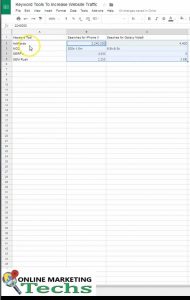
But in order to back up and make sure that these numbers are accurate, I strongly suggest that you have your own open source tracking software on your site that you can verify that the numbers are correct. So that you own the numbers. Or, if you don’t want to use Google Analytics, have your own tracking because you don’t trust that Analytics is in your website or wants your information or sell your information if you’re worried about that. That’s a certain interest to a lot of businesses.
It’s very important that you verify that the numbers are accurate on your end as far as your conversion data, your keyword tracking, all of it; make sure you know what’s getting you your money. You know that it’s good to have the conversions set up for you and your analytics tracked and reporting done for you by a Google Analytics certified company like Online Marketing Techs. If you have any questions about analytics tracking or what or website tracking, feel free to contact us at onlinemarketingtechs.com. Have a good day!


Marketing Consultant – Boulder, Colorado – A marketing consultant is responsible for working with businesses to design and institute marketing strategies. The marketing strategies should be focused on achieving the main business objectives of the company (product sales, lead signups, brand impressions, etc.). The marketing consultant will generate a detailed marketing plan, develop the marketing message & content, identify the proper channels to promote your business, put the plan into action, and optimize the strategy based on performance data.
The consultant should have knowledge of the consumer behaviors, market performance statistics & predictions, as well as the tools & platforms used to institute the marketing strategy. Then the consultant will position the business offerings to a narrowly targeted audience and draw interest from potential customers.
Boulder is unlike any other City, and marketing a Boulder business (or to Boulder locals) requires a unique approach. It is important to consider a consultancy like Online Marketing Techs that has this unique approach in mind when creating your strategies and messaging. People are looking for what your business offers, but needs the right positioning and messaging to convince them that your products or services are the right fit.
Before you even build your business, you should know if there is a need for what your business offers. A market consultant can help you identify the demand and if your business has a good chance of success or not. The consultant will also help you Identify your top competitors and take notes of the advantages your business has over them. What are they doing to generate sales? What is your unique selling proposition? The answers to these questions should be noted and considered while creating your targeting and messaging.
It is essential that you know who your customers are. This is the part of the research phase that identifies the different profiles of your consumer demographics. A good consultant will help you build out these buyer persona’s so that you can tailor your messaging to sell to these specific profiles. If you already have sales, you may have access to some of this information already. It is great to generate interest, but it is even better to generate interest from the people that are most likely to buy. This is especially important when building custom audiences in display, video and Facebook marketing.
Your marketing consultant should be fluent in analytics in order to optimize your strategies and produce the best results. The industry consumer base of every business is constantly changing and evolving. It is important that you can identify trends, channels, messaging, targeting, etc. that work and which ones that don’t so that you can focus your resources on achieving your business goals. Your consultant should be well-versed in:
KPI’s or key performance indicators are metrics that you can measure in order to see if you are making progress toward reaching your overall business objectives. In online marketing, some of the basic KPI’s include
You will want to make sure your website and marketing analytics are set up to receive these metrics as well as dimensions like:
Make sure you chose a knowledgeable Boulder Marketing Consultant to drive sales for your business. Contact Online Marketing Techs now.
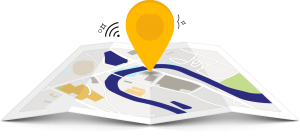
So, today I’m going to show you how to set locations in AdWords and how to set bid adjustments based on data you’ve received. First, you’ll select the campaign you want. Then you will go in and select locations. You’re going to want to go up here and hit the geographic report. Since we’re targeting the United States, I’ll just select that. You can select the region, state, Nielsen regions, congressional district, county, municipality, city, postal code airport, borough, city region, neighborhood, university, and district. I’m going to select the state. Select all. I’m going to add target and set bid adjustments, but I’m not going to actually set the bid adjustment just yet. Save. Now, I’ll see that I have all of these targeted now, and I can set bid adjustments based on the data. I have this collum set to cost per conversion. I want the highest cost per conversion so I can set a bid adjustment based on “that’s too high for me.” Really, in this campaign, it’s not too high for me. But, since it’s significantly higher in Wisconson, I think I can pay less for that and I’m going to decrease by 5%. I’ll come back in a week and see what Wisconson looks like, and based on the data I’ve received because I’ve put enough money into this campaign, I know that a week is enough data for me to see that this will either be performing the way I want to or not. I’ll check and see how high of a cost per conversion. Now, I want to see what’s costing me the most. California comes in at 353 clicks. That’s significantly higher than the rest and it’s costing me $55.02. But, I get a good cost per conversion and this is a good portion of my audience for this campaign specifically. I can also see here what is also costing me and not converting. This cost me $0.32, Missouri. I could set a bid adjustment on that. But, I might monitor that for another week or so and see if we don’t get any conversion in there, I might decrease by 5% and just keep bumping it up if I don’t see conversions. In fact, right now, I’ll go ahead and decrease this for Missouri because in the last 30 days there hasn’t been a lot of conversions for Missouri. Nevada $0.32 – Washington – New York. I’m going to monitor the rest of these for now. Missouri is not really a highly targeted one for this specific campaign based on what we’re trying to sell, they’re not a high demographic. So, now you know how to set your locations. You can set your bid adjustments. Use the data right here. If you’re looking for more impressions, you’re trying to brand more you’ll want to focus on impressions and maybe set higher bid adjustments for that. Or, if you’re trying to see more traffic, you know, see where you’re getting the most clicks, focus on those. If you’re trying to get a lower cost per click, focus on the data that’s important to you. For me, really, right now, it’s about cost per conversion and cost and my conversion data. I hope I’ve helped you out. Don’t forget to subscribe. And if you need any help, contact Online Marketing Techs at onlinemarketingtechs.com to help you out with your online marketing needs.
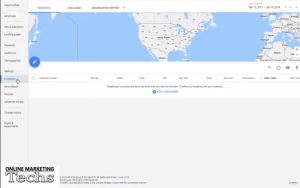
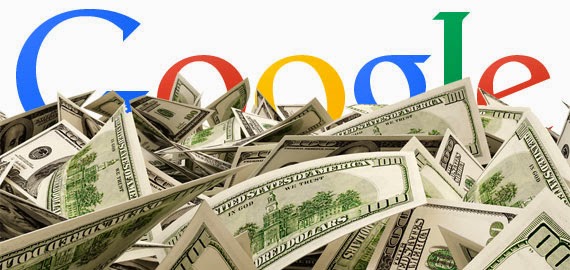
 Online Marketing Boulder, Colorado
Online Marketing Boulder, ColoradoSo, you’ve got a great business with a wonderful unique selling proposition. Now how do you target the right people and attract them to your business? Obviously, you will want to focus your marketing efforts on where your customers are going to be found. It doesn’t matter whether you are a local Boulder, Colorado business or not; you need to market your business in order to make it grow.
If you are familiar with Boulder, Colorado, you will know that people here march to the beat of their own drum. That goes for businesses as well. Boulder isn’t a normal place and neither are the businesses that make the community thrive. That is why attracting the right audience is so essential to your business. You need an online marketing approach that speaks to your audience.
As everyone in Boulder is constantly online, for most businesses the best approach is through online marketing platforms like AdWords & Facebook Ads. This is because the majority of internet users search through Google, and a very high portion of overall internet usage can be attributed to time spent on Facebook. So, no matter who your target customer is, a significant portion of them are using these fantastic products.
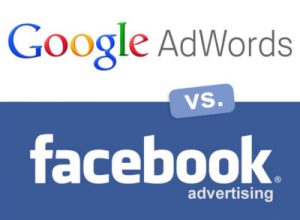
Clients have asked me which one of these platforms they should advertise on. Honestly, there is no one answer. I think both are wonderful, but for some clients, I have seen one work better over the other. A lot of this has to do with the targeting, optimization, and messaging. So let’s break down the advantages of both of these.
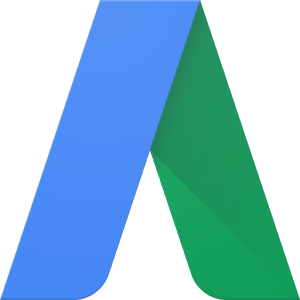
AdWords has the ability to target and reach people through Google Search, the Google Display Network (and partner sites), and the Google Shopping Network. The targeting options can be extremely in-depth and allow you to target and optimize for the right audience. AdWords is really a beast so I won’t even get into all of the amazing targeting options (which include being able to set bid adjustments).

Facebook allows you to use a myriad of ads to people on Facebook and Instagram. Along with AdWords, Facebook Ads has its own unique targeting abilities. You can target by so many different interests and affinities as well as demographic information that it is really insane. Some of the targeting options allow you build audiences to show your ad that includes, excludes, or combines lists based on the following:
I recommend using both online marketing platforms if possible. Either way you go, you will need to track, analyze, and optimize in order to be successful on the web.
Recent Comments